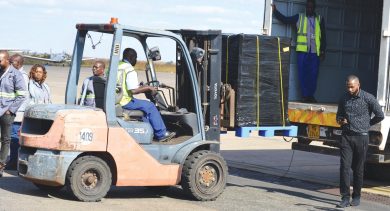Struggling economy to exacerbate food insecurity
Malawi’s embattled economy is poised to worsen food insecurity between 2024 and 2025, making it challenging for impoverished households to meet their fundamental food requirements.
This is according to a Southern Africa food crisis alert issued on Wednesday by the Famine Early Warning Systems Network (Fewsnet), prior to the 44 percent devaluation of the Malawian kwacha. Zimbabwe is also expected to face a similar predicament.
The warning comes barely a week after the Centre for Agricultural Research and Development forecast that Malawi would lose K337 billion worth of maize yield due to the socio-economic impact of the El Nino phenomenon.
The alert identifies Malawi and Zimbabwe as the two countries of “gravest” concern in the Southern African region. Mozambique and Madagascar are also causes for concern, but not to the same extent as Malawi and Zimbabwe.
This implies that the hardships Malawians are enduring will not end anytime soon, necessitating preparation for challenging times in the next two years.

The alert states in part: “In the eastern Democratic Republic of Congo and Mozambique, ongoing conflict will contribute to high food assistance needs, while economic conditions are expected to be a key driver of severe food insecurity in Zimbabwe and Malawi.”
It says as a result of the harsh economic conditions, government, donors and humanitarian organisations will need to prepare for high food assistance needs in Malawi and Zimbabwe from early 2024 through to 2025.
The warning adds that the harsh economic realities will result in impoverished households failing to purchase enough food to meet their daily needs, with over half of Malawi’s population relying on assistance.
An erratic start to the rainy season is expected to further exacerbate the situation, reducing agricultural labour opportunities.
Ultimately, the population in need of humanitarian assistance across Southern Africa, including Malawi, will remain high through early 2025.
After an initial peak in needs during the 2024 lean season, seasonal improvements in food security outcomes associated with the harvest in April and May 2024 are expected to be short-lived across the Southern African region.
This will be due to a decline in household and locally produced stocks.
Malawians have since expressed their frustrations in interviews, urging employers and the government to provide people with a safety net.
Mike Phiri, a Blantyre-based businessperson, said: “If that is the situation, then the government must ensure there is a conducive business environment for our businesses to thrive.”
Zomba-based fuel attendant spells doom for the country, particularly in light of the devaluation, while Aaron Banda, a motorcycle taxi operator in Mzuzu, said life will be difficult without cushioning measures.Mary Matandika said the alert
Henry Harawa, a Lilongwe-based cross-border trader, said in a separate interview the alert offers no hope for the country, especially given the depreciation of the kwacha.
Commentators claimed the alert means Malawi will face multiple crises that will require decisive leadership.
Catholic Commission for Justice and Peace national coordinator Boniface Chibwana in an interview said the alert necessitates appropriate government preparation.
He emphasised the need to “take decisive action” on mega farms, stating that Malawi has the potential to be self-sufficient in food if it can effectively implement agricultural commercialisation.
He said: “Businesses and companies capable of growing maize and other food items on a large-scale must be supported.
“In this way, the market will be flooded with food, and prices will be affordable for the majority of impoverished Malawians.”
Chibwana hinted on the need for the government to introduce economic activities that allow people to participate in the economy beyond a select few.
He also pointed out that the Agricultural Development and Marketing Corporation (Admarc) should be revived to ensure that people have access to and can afford markets.
Chibwana argued that a safety net would be provided for the majority of poor households in this manner.
Governance commentator Mavuto Bamusi said in a separate interview that Malawi, as highlighted in Fewsnet’s alert, will be in a multiple crisis exacerbated by the 44 percent devaluation of the kwacha, which has caused a significant increase in goods and services prices.
The former presidential adviser, added that the government will need to implement an expanded special food distribution programme targeting urban and rural impoverished households as part of cushioning measures.
He said the government will also need to implement an emergency social cash transfer programme households. to help vulnerable
Bamusi said: “However, social protection measures are not a long-term solution. Malawi needs to become a producing and exporting economy and diversify from rainfall-dependent agriculture into extensive irrigation programmes.”
Minister of Information and Digitisation Moses Kunkuyu, who is also the official government spokesperson, was yet to respond to our questionnaire on how the government intends to cushion Malawians from the pending food crisis.
Meanwhile, 4.4 million people are expected to face hunger in the 2023/24 consumption period, representing 22 percent of the country’s projected population of 19.6 million.
The Malawi Vulnerability Assessment Committee annual food security assessment results published in August this year shows that the projection represents a 15 percent increase compared to the previous consumption period when 3.9 million people faced hunger






One Comment